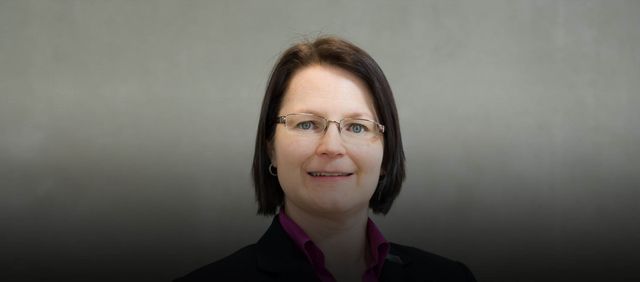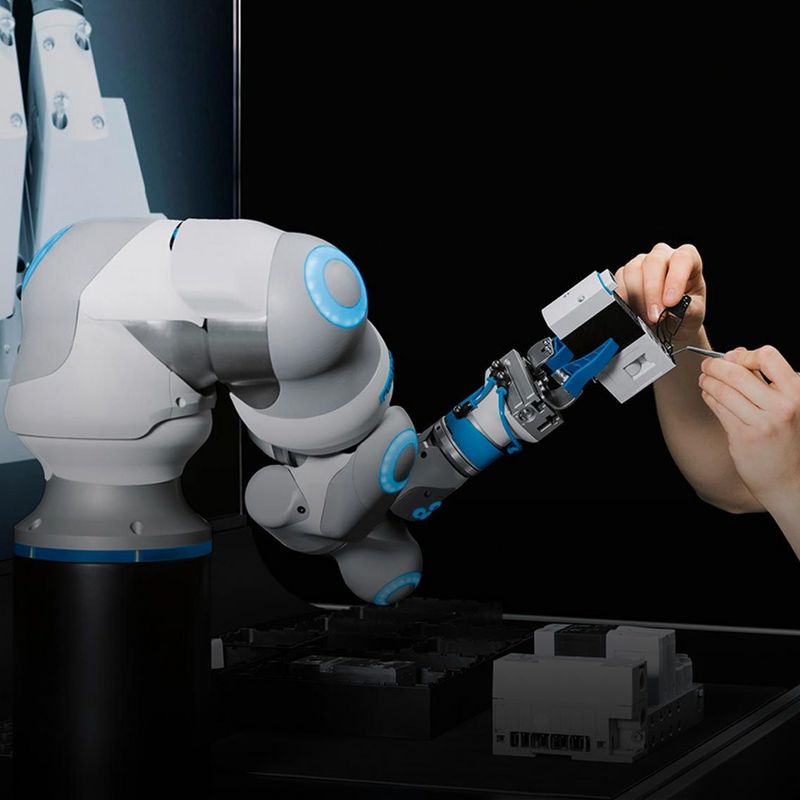17. Dezember 2020
When it comes to professions that are still considered a “male domain”, at least in Germany, engineering has to be near the top of the list. In Germany, female engineers make up just 18 percent of the total. Kira Kastell, professor of Transmission Technology in Frankfurt and chairwoman of the “Women in the Engineering Professions” network, knows all about the barriers which prevent women from studying and working in engineering and is concerned to find ways to break them down.
Name: Kira Kastell
Age: 45
Occupation:
Professor of Transmission Technology in Electrical Engineering
Websites:
www.vdi.de
The share of women in the engineering profession in Germany is only 18 percent. What are the biggest barriers for women when it comes to choosing to study and work in engineering?
From my point of view, a major hindrance is the image which society at large has and communicates of the engineering profession and of women in technical occupations. The more-or-less conscious narrative is that the technical professions “aren’t feminine”, so women have a hard time in them, either being marginalised as outsiders or no longer being perceived as attractive thanks to what looks like an exotic choice of profession. Given all of this, it’s difficult to make a career choice of this kind. This is true even if there are now a lot of job on offer that present the profession in a form which is packaged to attract young women.
How could these obstacles be removed?
The starting point is the public view of the engineering profession and its spheres of influence in daily life, but also, for example, in climate protection and as a means of support for an ageing society. People still react to my choice of profession with amazement - on two counts! You’re a professor? Of electrical engineering? Isn’t that exotic/difficult/unusual? Even if this is a well-meaning attempt at recognition, you still get lumbered with the “not normal” label. For this reason, we need to ensure that neither negative nor positive discrimination takes place.
Could a quota help here?
Yes. Even though the long-term goal should always be to use the quota to make the quota surplus to requirements. However, there’s a range of studies which show that the normality I talk about above only arises when the minority group grows to over 30 percent of the whole. If the percentage is very low, while the minority might often still be well treated and cared for, it’s still consciously or unconsciously prevented from reaching this critical threshold.
Is there still a lack of visible role models?
We’re now getting more and more female role models in the engineering profession – but it still isn’t enough! Especially when you consider not just the sheer range of professions, but also the life situations of the people involved.
We want to shine the spotlight more on women in the engineering profession.
Why is the engineering profession so special to you?
Contrary to popular belief, although mathematics is necessary, logical thinking, curiosity and creativity are much more important. And the fields are becoming more and more interdisciplinary as the applications being developed become ever more commonplace in everyday life. It’s for this reason that engineers have to enjoy working with other people rather than shutting themselves away and closing the door.
What contribution are you aiming to make with the “Women in the Engineering Professions” network?
We want to shine the spotlight more on women in engineering professions so that they can be role models in the way I described above. What’s more, the network is home to like-minded people who are looking to swap experiences and get support in all their life situations.
To what extent are women’s needs failing to be considered in the development of new technologies?
Since the teams are often not diverse in their composition in the development phase, there are lots of small points to consider. Examples of existing technologies or applications include smartphones which, although their functions are easy to grasp, are a significant challenge due to their size. Women are often slightly smaller and slighter than men, and their wardrobe often has fewer and/or smaller pockets than men’s clothing. This doesn’t square with the developers’ assumption that phones are always to be kept on your person. And then you have clip-on microphones, whose battery part is designed to be put in an inside jacket pocket which women don’t usually have. But there are also some non-gender-specific challenges: the need for scissors or potato peelers for left-handers isn’t automatically taken into account by entirely right-handed teams. This is why diversity in product development is so important.
Would you like a household robot?
I already have a robot vacuum cleaner – which is a real relief for me as an allergy sufferer. My garden is too small for a robot lawn mower, but a weeding robot which could also decide on its own what is a weed and what isn’t would be a fine thing.
Which digital product has yet to be invented?
I struggle a bit with the idea of a purely digital product - would a way of teleporting objects and people count as digital? Otherwise, I could imagine a few devices: along with the weeding robot, I could also do with something to dust shelves. If there was a product that could make purely digital images or the like appear deceptively real – preferably also with a sense of physical presence – I could also get excited about that.
Which digital products can you do without?
Voice assistance systems that respond without being asked. That’s why I don't use any of them. However, the app in my smartphone also switches itself on from time to time and ignores the mute button. And then it gives me inappropriate tips or comments.
Which technical application will always remain a mystery for you?
With some apps, I wonder if they have programming errors or if I just didn’t understand how they work. And I don’t just mean language assistance systems. What I often find lacking is intuitive ease of use.
When were you last offline for 24 hours?
When I went on holiday at the start of the year - when such a thing was still possible - I was even offline for a whole week. It was just great.
A holiday without Wi-Fi - is that a dream or a nightmare?
That holiday was a dream, and you really can get by with paper travel guides! It’s also a much better way of getting in contact with local people.
In the #explore format we’re giving a regular voice to exciting and inspiring people from the digital scene:researchers, bloggers, start-up founders, entrepreneurs, hackers, and visionaries.


